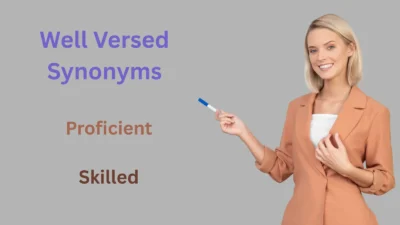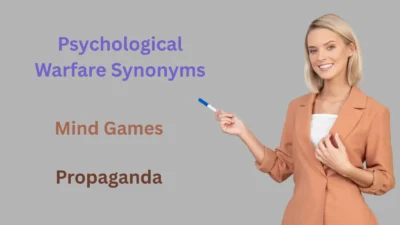Good Luck Synonyms, such as fortune, serendipity, and blessing, express moments when things turn out well or favorably. For example, someone might say, “It was pure luck I found that job,” or “Fortune was on my side today.”
Using the right synonym for good luck helps you set the right tone — from casual encouragement to a formal expression of success or destiny. Each word captures a slightly different feeling, from coincidence and fate to hope and positivity.
If you’re writing about success, motivation, or everyday expressions, these synonyms for good luck add variety and charm to your language. In this guide, we’ll explore alternatives, their meanings, and how to use them naturally in context.
What Does Good Luck Mean?
Good luck means success or positive outcomes that happen by chance rather than through planning or effort. It’s often used to wish someone well or describe a fortunate event.
Good luck can refer to:
- Favorable outcomes — when things turn out better than expected
- Unexpected success — winning or achieving something by chance
- Encouragement — wishing someone confidence before a challenge
- Blessing or fortune — when life feels especially kind
It’s not just about chance — good luck carries a sense of hope, optimism, and faith that things will go right. It’s a phrase filled with positivity, encouragement, and belief in brighter outcomes.
30 Synonyms & Related Words for Good Luck
1. Best of luck
Description: A simple and sincere wish for success.
Example: “Best of luck with your presentation tomorrow!”
Usage: Common and friendly; fits both casual and professional settings.
2. All the best
Description: General well-wishing that goes beyond luck to overall success.
Example: “All the best in your new role!”
Usage: Versatile; perfect for cards, emails, or supportive messages.
3. Wishing you success
Description: A direct and formal expression of hope for positive results.
Example: “Wishing you success in your upcoming exams.”
Usage: Professional or academic; polite and encouraging.
4. Break a leg
Description: A playful idiom meaning “perform well,” especially in theater.
Example: “You’ll do great on stage—break a leg!”
Usage: Informal; creative and energetic for artistic or performance contexts.
5. Fingers crossed
Description: Expresses hope that something will turn out well.
Example: “Fingers crossed that you get the job!”
Usage: Casual and modern; fits text messages or friendly chats.
6. Godspeed
Description: A blessing for safe and successful travel or endeavor.
Example: “You embark on a new adventure—Godspeed!”
Usage: Formal, old-fashioned, or poetic; often used in farewells.
7. Fortune favor you
Description: A literary or formal wish for destiny’s blessing.
Example: “May fortune favor you in the competition.”
Usage: Elegant and ceremonial; suitable for speeches or writing.
8. Blow them away
Description: A motivational phrase encouraging someone to impress others.
Example: “Go in there and blow them away with your skills!”
Usage: Informal, enthusiastic, supportive tone.
9. Knock ’em dead
Description: Encouragement to perform with excellence.
Example: “Your performance is going to be amazing—knock ’em dead!”
Usage: Informal and energetic; perfect for friends or entertainers.
10. You’ve got this
Description: Expression of confidence in someone’s ability.
Example: “Don’t stress over the interview—you’ve got this!”
Usage: Casual, empowering; modern and personal.
11. May the odds be in your favor
Description: A pop-culture inspired phrase from The Hunger Games meaning “good luck.”
Example: “May the odds be in your favor during the finals.”
Usage: Playful, creative, often humorous.
12. Blessings
Description: Wishing divine favor or spiritual support.
Example: “Blessings to you on your new journey.”
Usage: Gentle, warm, spiritual or religious contexts.
13. Prosperity
Description: A wish for success and wealth in future endeavors.
Example: “Wishing you prosperity and happiness in your business.”
Usage: Formal or ceremonial; ideal for business or festive greetings.
14. Smooth sailing
Description: A metaphor for things going easily or without problems.
Example: “Hope your new project is smooth sailing all the way.”
Usage: Informal, friendly, lighthearted tone.
15. Have faith
Description: Encouragement that trust and confidence will bring success.
Example: “Have faith—you’ve worked hard for this.”
Usage: Supportive, emotional, and personal tone.
16. Here’s to your success
Description: A toast-like expression celebrating upcoming victory.
Example: “Here’s to your success in the big meeting tomorrow!”
Usage: Warm, formal, and suitable for speeches or celebrations.
17. Shine on
Description: Encourages someone to stand out or show their best self.
Example: “Go out there and shine on!”
Usage: Positive, motivational, slightly poetic.
18. Go get ’em
Description: High-energy encouragement to take action confidently.
Example: “Go get ’em, champ!”
Usage: Informal and dynamic; often used in sports or motivation.
19. Take care
Description: Soft, caring way of wishing someone well.
Example: “Take care and best of luck on your new adventure.”
Usage: Gentle and warm; personal or parting phrase.
20. May your dreams come true
Description: A hopeful expression focusing on long-term wishes.
Example: “May your dreams come true with this opportunity.”
Usage: Emotional, ideal for heartfelt writing or greetings.
21. Hoping for the best
Description: Neutral phrase showing cautious optimism.
Example: “We’re all hoping for the best outcome.”
Usage: Everyday, sincere tone; fits uncertainty or empathy.
22. Keep your fingers crossed
Description: Variation of “fingers crossed,” expressing shared hope.
Example: “Keep your fingers crossed for my exam results!”
Usage: Informal, conversational, relatable.
23. You’ll nail it
Description: Confident assurance of success.
Example: “You’ll nail that interview—you’re totally prepared.”
Usage: Friendly, informal, and upbeat.
24. Go forth and conquer
Description: Motivational and commanding phrase urging confidence.
Example: “Go forth and conquer the business world.”
Usage: Formal yet energetic; used in speeches or writing.
25. Wishing you well
Description: A gentle, positive wish for general success or peace.
Example: “Wishing you well in your new endeavor.”
Usage: Neutral and polite; fits emails or formal messages.
26. Here’s hoping
Description: Expression of shared anticipation for success.
Example: “Here’s hoping the results go your way.”
Usage: Informal, humble, conversational.
27. Bravo in advance
Description: A Compliment and a good luck wish combined.
Example: “Bravo in advance—you’re going to do amazing.”
Usage: Cheerful and unique; casual encouragement.
28. You’re destined to win
Description: Strong, confident belief in someone’s success.
Example: “You’re destined to win that scholarship.”
Usage: Motivational, emotional, uplifting tone.
29. May fortune smile on you
Description: Poetic way to wish for luck or destiny’s favor.
Example: “May fortune smile on you as you take this leap.”
Usage: Literary, romantic, or ceremonial tone.
30. The best is yet to come
Description: Optimistic phrase suggesting greater success ahead.
Example: “Don’t worry about today—the best is yet to come.”
Usage: Inspirational, hopeful, and future-oriented.
How to Choose the Right Synonym
When replacing “good luck,” consider tone, relationship, and context:
- Casual or Friendly: Use best of luck, you’ve got this, go get ’em, or you’ll nail it.
- Formal or Professional: Choose wishing you success, prosperity, Godspeed, or wishing you well.
- Creative or Playful: Try break a leg, may fortune favor you, or smooth sailing.
- Emotional or Inspirational: May your dreams come true, shine on, or the best is yet to come.
- Spiritual or Poetic: Go with blessings, Godspeed, or may fortune smile on you.
Cultural nuance matters, too — for instance, break a leg works well in Western contexts (especially the arts) but may confuse non-native audiences unfamiliar with idioms. Meanwhile, Godspeed and blessings carry spiritual undertones often used in religious or ceremonial settings.
Conclusion
Exploring Good Luck Synonyms helps you express fortune, positivity, and success in many ways. Words like serendipity, blessing, fortune, and fate each capture a unique shade of optimism and chance.
Using the right synonym lets you tailor your message — whether you’re wishing someone well, describing a lucky event, or writing about success and opportunity. These alternatives bring warmth and meaning to your language, reminding us that a little luck can go a long way.



